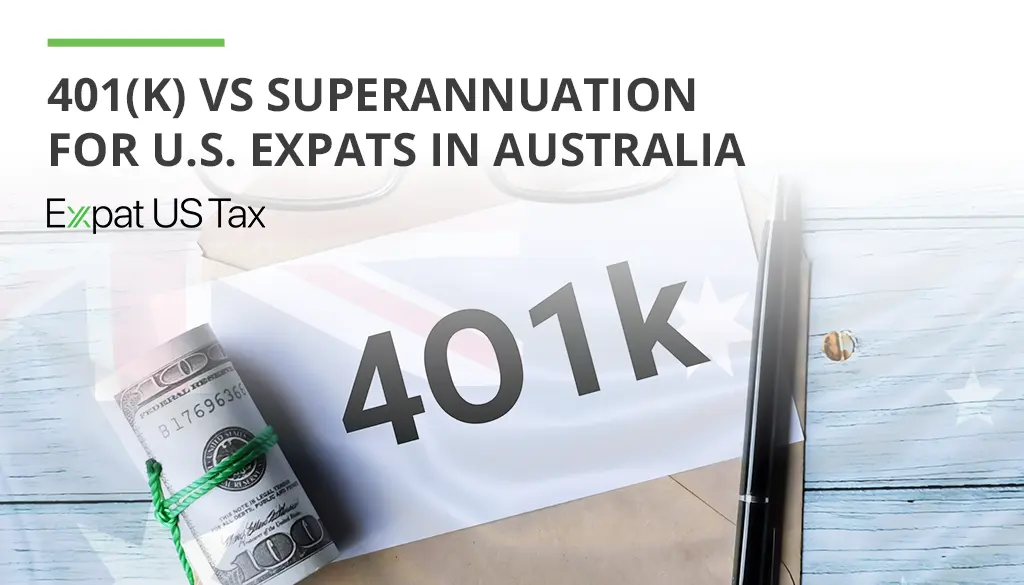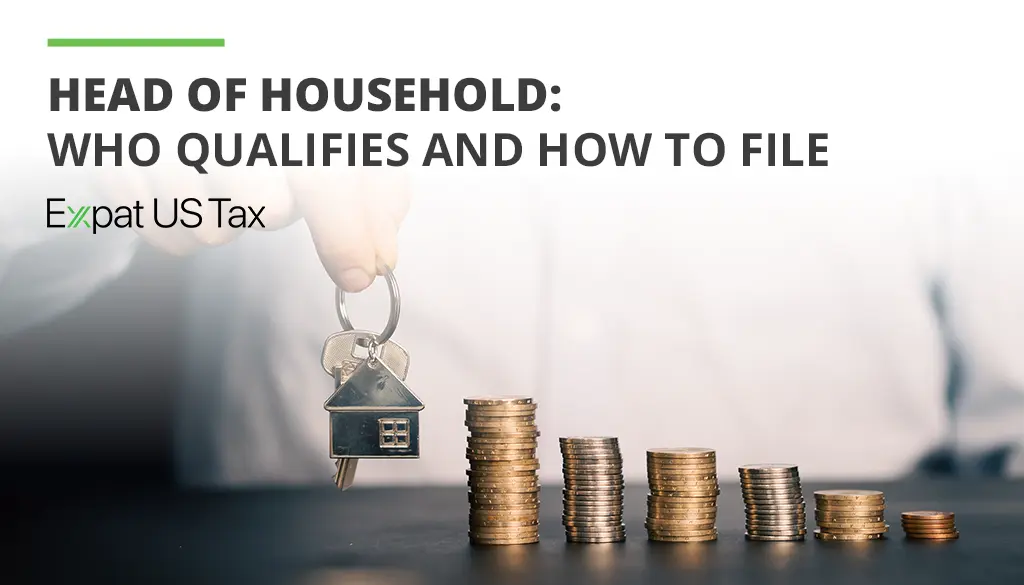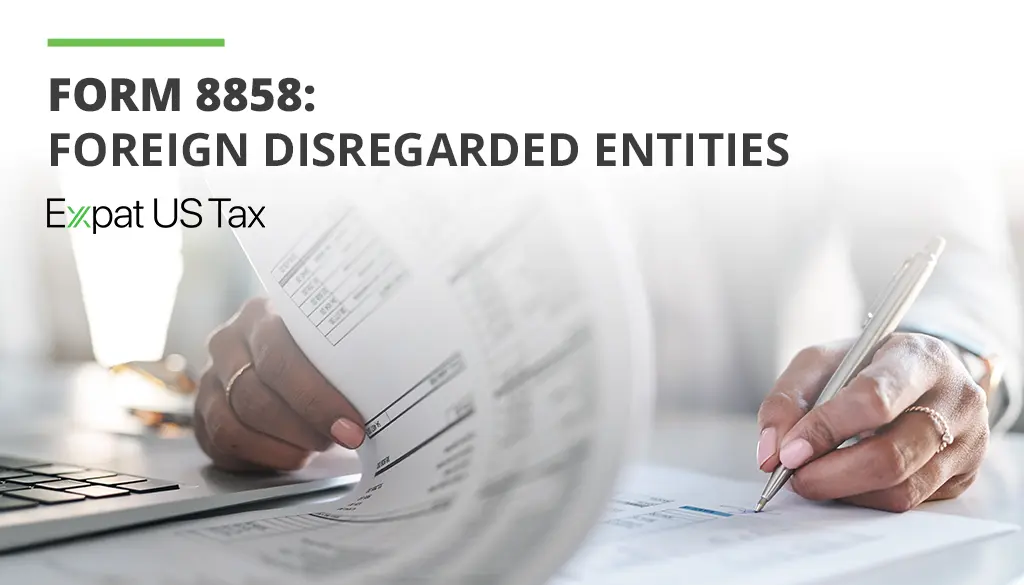401(k) vs Superannuation


Taki Trpceski, a tax professional with 15 years of experience, specializes in US tax preparation, tax planning, and tax advice for US citizens and Green Card holders living and working in Australia. *Schedule a consultation with Taki today.
*30-minutes US$347.
Table of Contents
401(k) vs Superannuation for US expats in Australia
If you’re a US expat living in Australia with a 401(k), it’s natural to wonder how it compares to Australia’s superannuation system. Both are retirement savings vehicles, but they differ significantly in structure, tax treatment, contribution rules, and access conditions.
This guide breaks down the key differences to help you manage both accounts effectively and stay tax-compliant in both countries.
What is Superannuation?
Superannuation (or “super”) is Australia’s mandatory retirement savings system. Employers must contribute a percentage of your earnings to a super fund, which grows over time through investments. Employees can also make voluntary contributions.
Superannuation key points:
- As of July 2025, Australian employers must contribute 12% of your earnings to your super fund (including base pay, bonuses, and allowances). For context on how the SG rate stepped up over time and what’s next, read when superannuation started in Australia.
- You can add pre-tax (concessional) or post-tax (non-concessional) contributions to boost your savings.
What is a 401(k)?
A 401(k) is a US employer-sponsored retirement savings plan. Employees contribute a portion of their paycheck, and many employers offer matching contributions as an incentive.
401(k) key points:
- In 2025, Employees can contribute up to US$23,000 to a 401(k) plan (or US$30,500 if age 50 or older, including catchup contributions).
- Contributions are typically made to Traditional (pre-tax) and Roth (post-tax) 401(k)s.
- Employers may also match a portion of your contributions, this is optional, unless required by the specific plan type.

Need guidance on Superannuation and US tax rules?
Key Differences: 401(k) vs Superannuation
|
Category |
401(k) |
Superannuation |
|
System Type |
Voluntary |
Mandatory for eligible employees |
|
Who Contributes |
Employee + optional employer match |
Employer (12%) + optional employee |
|
Contribution Limits (2025) |
US$23,000 (US$30,500 if 50+) |
AUD$30,000 (concessional); AUD$120,000 (non-concessional); AUD$360,000 over 3 years (bring-forward rule) |
|
Tax Treatment |
Traditional: pre-tax; Roth: post-tax |
Contributions taxed at 15%; withdrawals generally tax-free after age 60 |
|
Access Age |
59½ |
60 (with condition of release) |
|
Early Withdrawal Rules |
10% penalty + income tax unless exception applies |
Strict conditions (e.g., hardship, terminal illness, permanent departure) |
|
Investment Control |
Limited to plan options |
Varies by fund; SMSFs offer full control |
|
Currency Exposure |
USD, US markets |
AUD, with global investment options |
|
Portability |
Cannot transfer to super; can roll into IRA |
Cannot transfer to 401(k); DASP available for non-residents |
|
Employer Requirements |
Not mandatory |
Mandatory 12% contribution from July 2025 |
|
US Reporting for Expats |
Not reportable on FBAR or FATCA |
May be treated as foreign trust; reportable on FBAR, Form 8938, and possibly Forms 3520/3520-A |
Which is better for US Expats?
- Younger expats staying in Australia:
Younger expats staying in Australia long-term often benefit more from superannuation, especially when they expect to live there permanently. The mandatory employer contributions effectively mean your retirement savings will see an increase.
If you’re not actively contributing to your US 401(k), it may grow passively while super becomes your primary retirement savings vehicle.
- Older expats returning to the US:
Maintaining your 401(k) may be more practical due to US tax rules, catch up contributions, and easier access.
Superannuation may be harder to access from abroad and offers less value if you’re not retiring in Australia.
- High-income earners:
You may benefit from using both systems by maximising US employer matching in your 401(k) and making voluntary super contributions for Australian tax advantages.
Because each system is taxed and regulated differently, it’s best to work with a cross-border tax or financial specialist who understands US-Australia tax treaties and reporting obligations. This ensures you maximize retirement savings while staying compliant.
FAQs
Can I contribute to my 401(k) while living in Australia?
Possibly. If you’re employed by a US-based company and receive US-sourced income, you may continue contributing to your 401(k). However, once you stop earning US wages, such as when working for an Australian employer, contributions typically stop.
Most US expats working in Australia rely on superannuation as their primary retirement savings vehicle.
Do I have to report my superannuation to the IRS?
Is my 401(k) taxed in Australia?
Can I transfer my 401(k) into superannuation?



